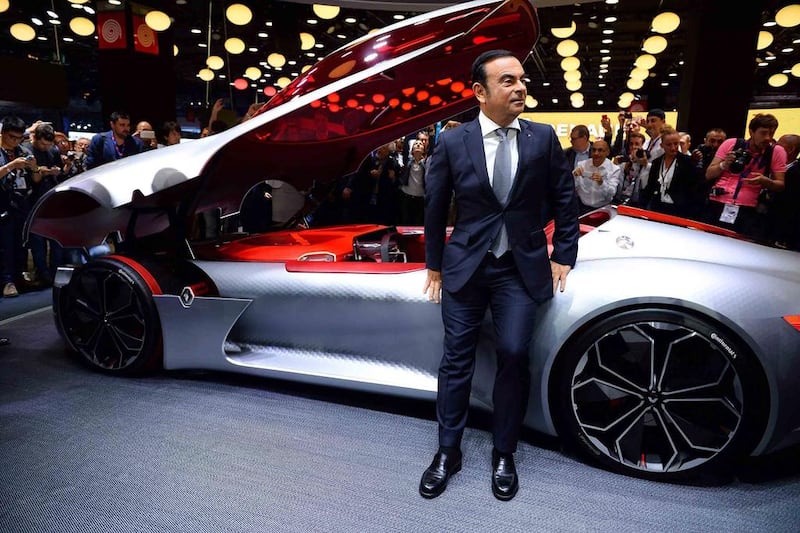Renault SA’s Carlos Ghosn pledged to cement the French automaker’s partnership with Nissan Motor Co. and Mitsubishi Motors Corp. after agreeing to stay on as chairman and chief executive officer for the next four years.
The companies will come up with a plan to “make the alliance irreversible” during his new term, Ghosn said on Friday, after Renault reported record annual revenue and profit. A new effort to boost efficiency at the three companies will be unveiled in the next few weeks, Ghosn told reporters at the company’s headquarters near Paris.
Ghosn’s reappointment, announced late on Thursday, put to rest weeks of speculation about Renault’s leadership and ensures the longtime chief executive will continue to steer the company through a potentially jarring technology transition. France, a top shareholder, had demanded a 30 percent pay cut, succession planning and deeper ties with Nissan that can outlast Ghosn’s tenure.
Renault named Thierry Bollore to be second-in-command to Ghosn, freeing the busy executive to focus on strengthening the alliance. The promotion to chief operating officer puts Bollore in line to succeed his 63-year-old boss.
Renault rose as much as 4.7 per cent after the company reported operating profit advanced 16 per cent last year to 3.8 billion euros ($4.8 billion), beating analysts’ estimates. Revenue jumped 15 per cent to 58.8 billion euros as demand for cars continues to expand in Europe, the company said in a statement. Renault’s AvtoVAZ, which sells Lada cars, is also benefiting from an improvement in Russia.
The shares were up 2.7 per cent to 88.37 euros at 12.19am on Friday in Paris, giving Renault a market value of 26.1 billion euros.
France’s backing for Ghosn is a turnabout from three years ago, when the two were at loggerheads over the state’s level of involvement in the company. Ghosn lost a clash with France’s then-economy minister Emmanuel Macron over whether France and other long-term shareholders should have double voting rights. Ghosn argued in favour of one share, one vote, while Macron said the state deserved a greater say.
His new mandate reflects the priorities of France, which owns a 15 percent stake. The government supported the nomination of Bollore, 54, a French citizen who started his career with the tyremaker Cie. Generale des Etablissements Michelin.
“We want to build new era of relations between Renault and the state,” French Finance Minister Bruno Le Maire said on C-news TV.
The new structure could give the French government political cover to reduce its stake, ultimately making a full merger of Renault and Nissan “a very real possibility,” Evercore ISI analyst Arndt Ellinghorst said in a note this week.
Still, Ghosn cautioned on Friday that any change in the financial structure of the alliance would have to be approved by both the French and Japanese governments. He added that Japan would not agree to a tighter structure if France remains a shareholder, underscoring comments he has made previously.
“For the moment, I don’t see how the Japanese side is going to accept further steps,” Ghosn said. “I don’t see it.”
France raised its stake in 2015 while Macron, who is now president, was economy minister. The state currently has no plan to sell Renault shares, a government official said this week.
Ghosn saved Nissan from near-collapse almost two decades ago and spearheaded the globalisation drive that now unites carmakers across continents. He remains chairman at all three companies, after giving up the chief executive job at Nissan. He has been chief executive at Renault since 2005, and oversees the three-way alliance as well.
In the new four-year term, Ghosn will continue to focus on Renault’s strategic plan, called Drive the Future, aimed at guiding the carmaker through industry shifts as more stringent pollution standards, electric vehicles and self-driving technology take hold.





